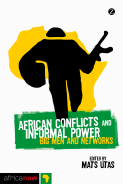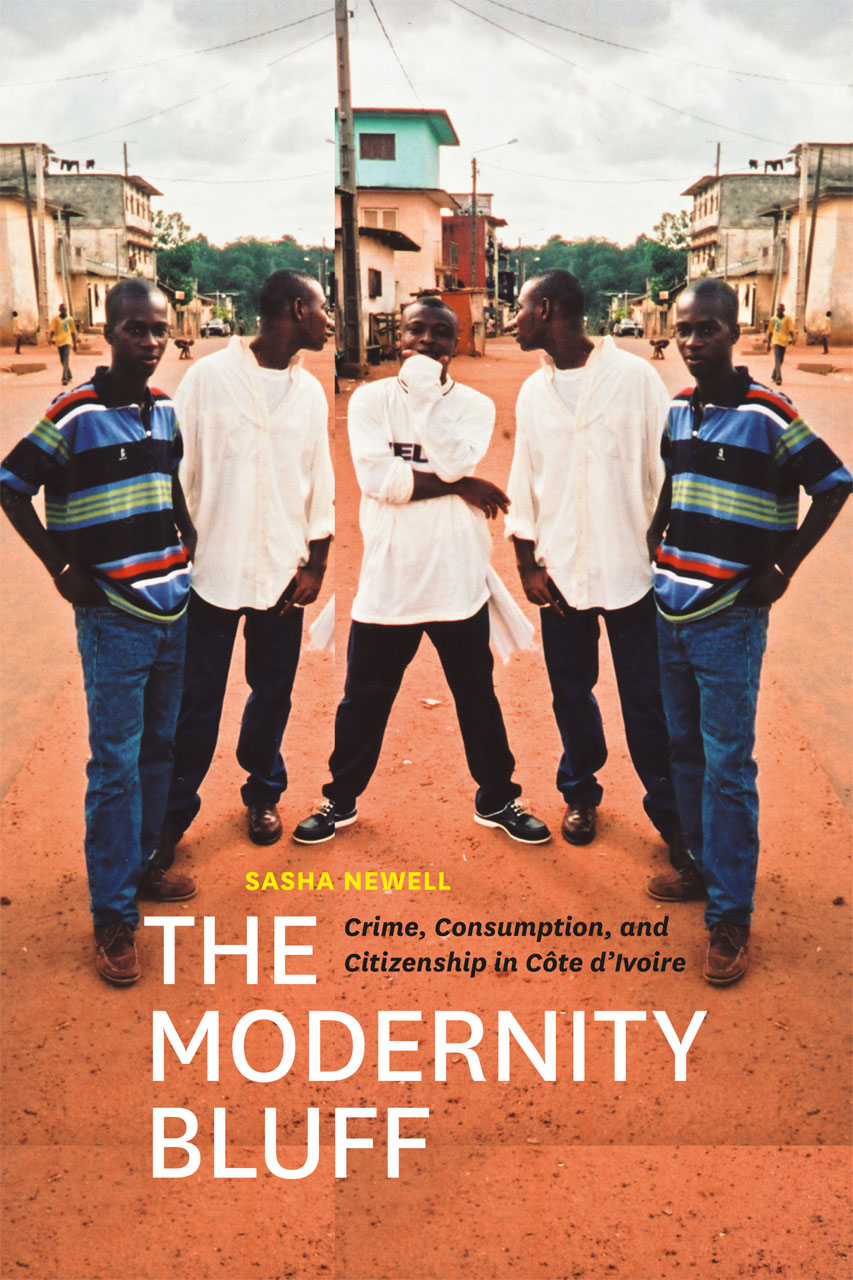Ebola: How a People’s Science Helped End an Epidemic is one of the first books to provide an in-depth analysis of the recent pandemic in West Africa, The author Paul Richards has done an excellent job in bringing to the fore community efforts in responding to the virus. Continue reading
Category: Book Reviews
Dead Aid: Why Aid is Not Working and How there is Another Way for Africa’ — Book Review by Thomas Perring
During the spring term I taught African Studies at Uppsala University. Students created a blog Uppsala African Reviews where they published reviews of books with a focus on contemporary African issues. Thomas Perring is one of the students.
Dambisa Moyo, Dead Aid: Why Aid is Not Working and How There is Another Way for Africa, Penguin Books (2010), ISBN 978–0–141–03118–7

Branded as a ‘polemic’ by The Guardian, international economist Dambisa Moyo, in her book Dead Aid, aims to prove that the aid system put in place for Africa does not work and is — contrarily to popular thought within ‘Western’ countries — damaging for the African continent. Despite at least $1 trillion of foreign aid being transferred to Africa in the past 60 years, Moyo suggests that the ‘high hopes and ambitions’ of early independence have been replaced with juxtaposing notions of ‘near destitution and renewed dependency’ (p. 19). Continue reading
Liberia: The Violence of Democracy, a book review by Elin Carlsson
During the spring term I taught African Studies at Uppsala University. Students created a blog Uppsala African Reviews where they published reviews of books with a focus on contemporary African issues. Elin Carlsson is one of the students.
Mary H. Moran. Ethnograpy of Political Violence : Liberia : The Violence of Democracy. Philadelphia, PA, USA: University of Pennsylvania Press. 2006.
199 pp. ISBN 9780812220285.
In her book ”Liberia: The violence of Democracy”, the american anthropologist Mary Moran explores a phenomenon that has been widely discussed by several scholars of different areas of study; democracy. Moran puts democracy in a different shed of light as she challenge the popular western view of violence and democracy as two separate ontological states. According to Moran there is no such separation. There is violence in democracy as well as there is democracy in violence, a thesis which she intends to prove through the lens of Liberia. Continue reading
A review of Maria Eriksson Baaz and Maria Sterns book Sexual violence as a weapon of war? Perceptions, prescriptions, problems in the Congo and beyond, by Nadja Piiroinen (2015).
During the spring term I taught African Studies at Uppsala University. Students created a blog Uppsala African Reviews where they published reviews of books with a focus on contemporary African issues. Nadja Piiroinen is one of the students.
As a feminist I have had many reasons to feel hopeful during the last few years. As a consumer of entertainment I’ve watched Tina Fey and Amy Poehler slay the last three Golden Globes, Taylor Swift make a 180, going from ignorant to feminist-spokes person with her now bff Lena Dunham, I’ve binged through SVT‘s Full Patte twice, and I cried as Beyoncé, standing tall in front giant letters spelling out the word feminist, became a gif, not talk about the whole Emma Watson amazingness. As a Swede I have seen a growing political movement for mainstreaming an intersectional feminist agenda, I’ve seen that movement intimidate the political establishment to include more feminist talking points, to form a ‘feminist government’, and appointing a minister of foreign affairs that has promised a ‘feminist’ foreign policy. These are some of the examples that have opened up for my hopefulness and enthusiasm, the atmosphere feels changed, and not just in Sweden anymore, slowly but surely being a feminist in Hollywood is going from taboo to norm, and personally, I’m loving it. Continue reading
The Modernity Bluff: book review by Joschka Philipps
Sasha Newell. 2012. The Modernity Bluff: Crime, Consumption, and Citizenship in Côte d’Ivoire. Chicago and London: The University of Chicago Press. 305 pp. [original source: African Studies Quarterly | Volume 14, Issue 3 | March 2014; pp. 143-145]
Sasha Newell’s The Modernity Bluff starts out by pulling the reader into one of Abidjan’s typical outdoor bars where, around tables fully covered with bottles, groups of young men lavishly outspend each other. They flash rolls of money, prominently display their cell phones, and exhibit their prestigious US brand name clothing in the most refined ways. We witness a bluff: many of those indulging in seemingly unlimited consumption that night “would struggle to find enough money to feed themselves the next day” (p. 2). What follows is an extraordinary account of how such bluffing makes sense in the Ivoirian context. Newell delineates in its most intricate details how the fakery of being wealthy and the performance of being “modern“ (i.e. “Westernized“) are of constitutive importance to such diverse phenomena as street language (chapter 1), the illicit urban economy (chapter 2), masculinity and social cohesion (chapter 3), consumption (chapter 4), migration (chapter 5), and the Ivoirian political crisis (chapter 6).
The Westgate shopping mall attack and Al-Shabaab in Somalia
“The bloody Shabaab attack on Nairobi’s Westgate shopping mall on September 21 was an act of desperation by a jihadi group beset by internal power struggles and plummeting support”, argues Somalia expert Ken Menkhaus in a blog post. The intent according to him is to stir up anti-Somali sentiments amongst Kenyans. Kenyans may thereby turn violent and target exiled Somalis in Kenya. If Somali’s are brutalized in great numbers Al-Shabaab hope to be seen as the true protectors of Somalis – in opposition to the Somali government which is seen as conniving with the Kenyan government. This is indeed a high risk plan by a movement that has over the past few years lost much of its previous power.
Very little is known of Al-Shabaab. There are many “experts” guessing, experts citing other experts’ guesses, thus producing a lot of half-truths. An exception to this is the recent book on Al-Shabaab in Somalia (Hurst 2013). It offers a deep and detailed reading of the movement. Below is a review that I recently did on the book. I am not seeking to legitimate the horrendous crime that the attack on the Westgate mall is, but see it as crucial getting a better understanding of what Al-Shabaab really is and Jarle Hansen’s book really helps us here:
Review of Al-Shabaab in Somalia: the history and ideology of a militant Islamist group, 2005-2012, by Stig Jarle Hansen
Outstanding.
Continue reading
Review of Christine Ryan: Children of War: Child Soldiers as Victims and Participants in the Sudan Civil War
There is quite a lot written about child soldiers in rebel wars in particular on the African continent. As Ryan clearly points out, and writes against, the bulk takes a victim perspective of child soldiers. A few studies, including my own on Liberia, have started on neutral grounds and have been able to show that a simple victim perspective has more to do with faulty research methods than realities on the ground. A nice thing with Ryan’s study is that the rebel army which she has studied, SPLA, won the war and eventually transformed into government of South Sudan. Child soldiers within this rebel army have thus lesser motives of downplaying their agency, as is often the case of other rebel armies in African warzones. This has rendered a whole range of alternative answers to reasons for joining the rebel army at a young age, beyond forceful conscription, and also motives for purporting soldier life. Continue reading
The Big Man book

Richard Mallett has reviewed our book African Conflicts and Informal Power (Zed books 2012).
http://africanarguments.org/2012/07/13/big-men-african-conflicts-and-informal-power-a-review-by-richard-mallett-odi/
“As a final observation, African Conflicts and Informal Power is perhaps above all else a testament to the strength and value of well executed…, in-depth qualitative research in expanding and refining our understanding of the drivers, nature and consequences of war. Whether the approach be ethnography or political sociology, this volume demonstrates why robust qualitative inquiry is so indispensable when it comes to deciphering conflict and discovering what is really there.”
‘war as a violent mode of participating in today’s global economy’: reading danny hoffman’s war machines
![978-0-8223-5077-4_pr[1]](http://matsutas.com/wp-content/uploads/2011/11/978-0-8223-5077-4_pr1.jpg?w=198) Below is my review of Danny Hoffman’s fantastic book The War Machines: young men and violence in Sierra Leone and Liberia recently published by Duke University Press.
Below is my review of Danny Hoffman’s fantastic book The War Machines: young men and violence in Sierra Leone and Liberia recently published by Duke University Press.
Malaria in insecure spaces. The first time I heard of Danny Hoffman was at an international conference and it was a fantastic story. Some of the senior academics shook their heads at the risks he had taken, blaming it on his “youth”, but I was rather impressed. My reading was that surviving this situation was dependent on his skillful building of trust and mutual respect with his research subjects: rebel soldiers. Hoffman had caught a serious stroke of malaria whilst being in the deep Sierra Leonean bush with rebel soldiers. He was saved by rebels who carried him across the border to Liberia for medical attention; clearly risking their lives, but thereby saving his. Continue reading
‘war as a violent mode of participating in today’s global economy’: reading danny hoffman’s war machines
![978-0-8223-5077-4_pr[1]](http://matsutas.com/wp-content/uploads/2011/11/978-0-8223-5077-4_pr1.jpg?w=198) Below is my review of Danny Hoffman’s fantastic book The War Machines: young men and violence in Sierra Leone and Liberia recently published by Duke University Press.
Below is my review of Danny Hoffman’s fantastic book The War Machines: young men and violence in Sierra Leone and Liberia recently published by Duke University Press.
Malaria in insecure spaces. The first time I heard of Danny Hoffman was at an international conference and it was a fantastic story. Some of the senior academics shook their heads at the risks he had taken, blaming it on his “youth”, but I was rather impressed. My reading was that surviving this situation was dependent on his skillful building of trust and mutual respect with his research subjects: rebel soldiers. Hoffman had caught a serious stroke of malaria whilst being in the deep Sierra Leonean bush with rebel soldiers. He was saved by rebels who carried him across the border to Liberia for medical attention; clearly risking their lives, but thereby saving his. Continue reading

